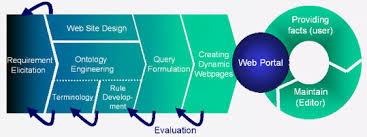How to Build a Website Step 1 - Hosting:
Hosting is where you put your website and all the Web pages. While
it's possible to build a website on your personal computer and never
move it online, it's somewhat pointless. No one but you will ever be
able to see it. So the first thing you'll want to do is find a Web
hosting provider.
There are several types of Web hosting options you can choose from:
There are several types of Web hosting options you can choose from:
- Free Web hosts
- Standard Web hosting
- Dedicated, Virtual, and Shared Hosting
- Colocation
Most people gravitate to free Web hosting without too much thought,
but there can be drawbacks to free hosting. You don't always get as much
space, you might be required to run their ads on your site, or there
may be bandwidth limits. Be sure to read all the fine print before you
put your website on a free Web host. I recommend using free hosting
providers for testing Web pages and for personal pages.

- Find a Web Hosting Provider - links to other sites for help finding a good host
- Web Hosting Reviews - find out what other users think
- Web Hosting Profiles - overviews of several hosting providers
How to Build a Website Step 2 - Do You Need a Domain Name?:
You don't need a domain name to put up a website. You can put up a
site on free hosting or even paid hosting plans without a domain name. A
domain name provides extra branding for your site and makes it easier
for people to remember the URL. But domain names cost money, typically
between $8 and $35 a year.
How to Build a Website Step 3 - Plan Your Website:
Once you've gotten a domain and decided on your URL, you can start planning your site. You need to decide:
- Type of site - Most websites are either news/information, product, or reference sites. As such they each have a slightly different focus.
- Navigation - The navigation affects the information architecture of your site.
- Content - Content is the actual pages you'll be building.
How to Build a Website Step 4 - Build Your Website Page by Page:
Building a website requires that you work on one page at a time. To build your site you should be familiar with:
- Design Basics - The elements of good design and and how to use it on websites.
- Learning HTML - HTML is the building block of a Web page. While it's not absolutely required, you'll do better if you learn HTML than if you don't.
- Learning CSS - CSS is the building block of how pages look. And learning CSS will make it easier for you to change your site's look when you need to.
- Web Page Editors - Finding the perfect editor for your needs will help you learn design, HTML, and CSS.
How to Build a Website Step 5 - Publish Your Website:
Publishing your website is a matter of getting the pages you created
in step 4 up to the hosting provider you set up in step 1. You can do
this with either the tools that come with your hosting service or with
FTP clients. Knowing which you can use depends upon your hosting
provider. Contact them if you are not sure.
How to Build a Website Step 6 - Promote Your Website:
The easiest way to promote your website is through search engine
optimization or SEO. You build your Web content so that it ranks well in
search engines. This can be very difficult, but it is inexpensive and
can result in good results if you work at it.
Other ways to promote your site include: word of mouth, email, and advertising. You should include your URL on all professional correspondence and whenever it makes sense in personal messages. I put my URL in my email signature along with my email address.
Other ways to promote your site include: word of mouth, email, and advertising. You should include your URL on all professional correspondence and whenever it makes sense in personal messages. I put my URL in my email signature along with my email address.
How to Build a Website Step 7 - Maintain Your Website:
Maintenance can be the most boring part of website design, but in
order to keep your site going well and looking good, you need to do it.
Testing your site as you're building it and then after it's been live
for a while is important. And you should also work on content
development on a regular basis.

No comments :
Post a Comment